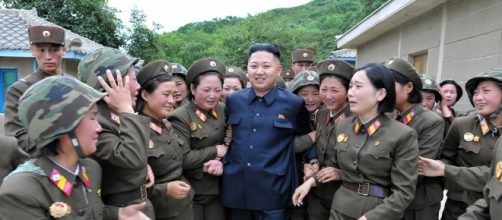In a request to the UN Security Council, the US asked the international body to freeze the assets of Kim Jong-un, coupled with an oil embargo on the Asian country. The sanction request came as a response to the country's recent sixth Nuclear Test, which was also the most powerful so far.
To further deprive North Korea of finances that may be channeled towards its military programs, the US also asked for a ban on textile exports from the country. A monetary freeze should also be extended to payments made to North Korean laborers abroad to curb the inflow of foreign exchange, according to the new proposal.
The US-drafted resolution which was circulated earlier today comes a few days after the US ambassador to the UN, Nikki Haley called for tougher measures to be imposed on North Korea.
Direct blow
The sanctions are seen as a direct blow to the top leadership in Pyongyang and will affect Kim Jong's assets as well as those belonging to the government and the ruling Workers Party.
If the draft goes through, the North Korean leader could also be added to a blacklist that could subject him to a worldwide travel ban. According to the draft, the travel ban has also been proposed on four other top government officials.
The sanctions come after President Donald Trump called China's President Xi Jinping and affirmed that military action against the rogue nation was not his first choice.
Support
It is yet to be seen if China, North Korea's most important trading partner, will support the move. Russia has already termed the newly proposed raft of measures as premature. The most likely scenario will probably see China and Russia resist the proposed sanctions, especially the oil embargo.
China provides North Korea with the bulk of her energy needs, and an oil embargo could totally collapse the country, which China would not like to see.
Vote
According to Haley, the proposed sanctions could be put to a vote as early as September 11. For the draft resolution to go through, it requires nine votes in favor, with no vetoes by France, Russia, China, US, and Britain.
Experts who are knowledgeable on the goings-on at the UN headquarters are skeptical about the resolution being passed.
They say it is highly unlikely that the draft, which will be tabled before the Security Council as early as Monday, will be passed in its current form.
Claims by North Korea that it had developed a powerful hydrogen bomb that could fit on a long-range missile, and the launch of a missile last month over Japan, prompted the freeze request by the US.


